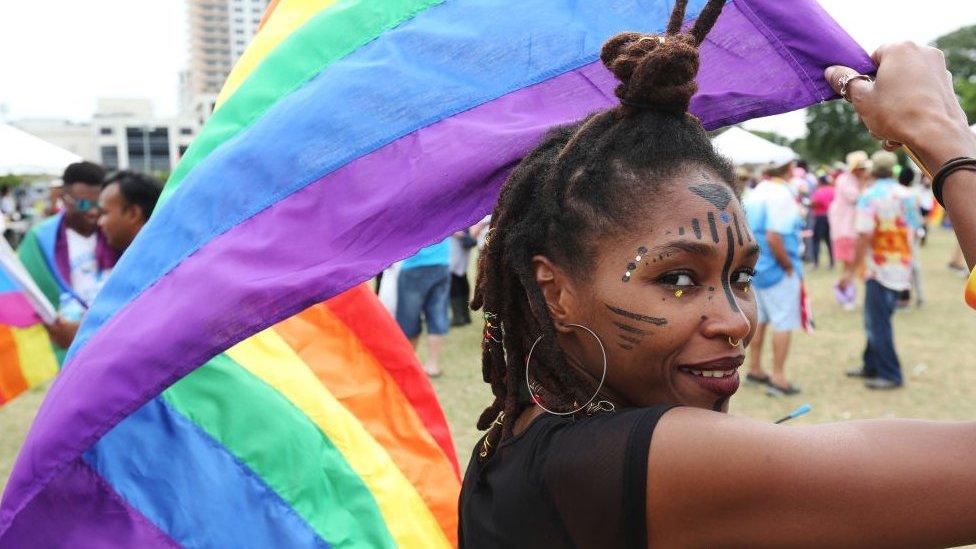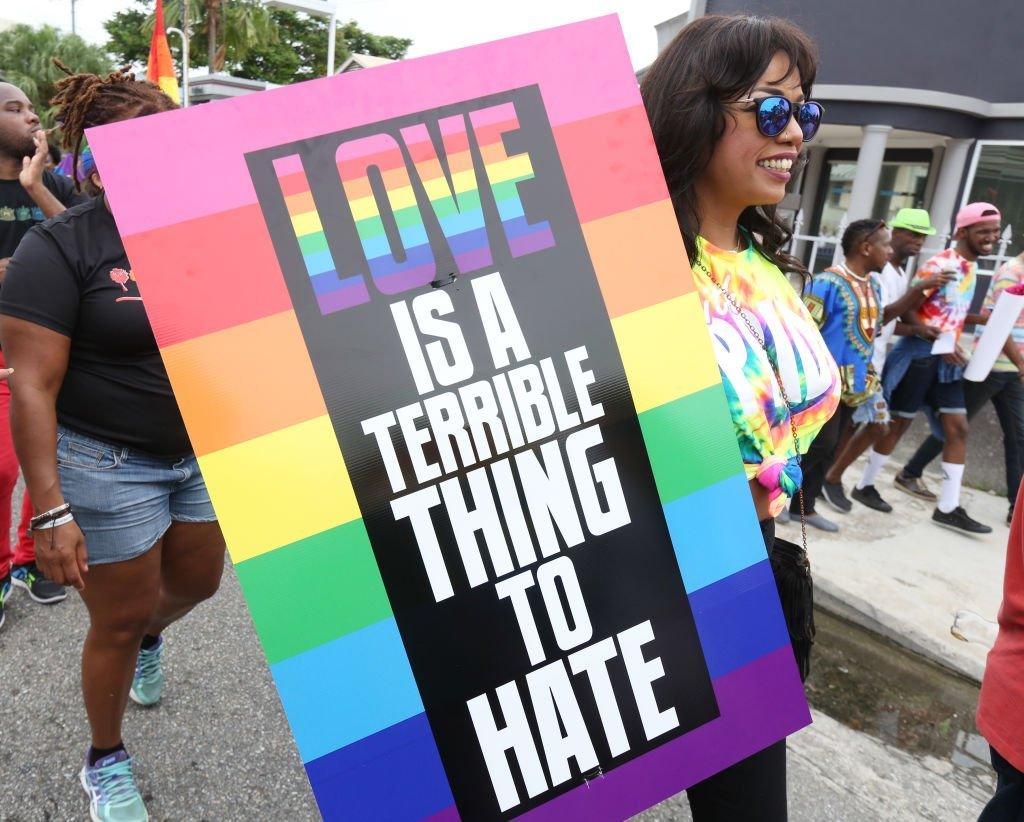Antigua's ban on same-sex acts ruled unconstitutional
- Published

Campaigners hope the ruling in Antigua and Barbuda will have repercussions in other Caribbean nations
A law criminalising same-sex acts between consenting adults in Antigua and Barbuda has been declared unconstitutional.
The country's high court ruled on Tuesday that the law contravened constitutionally guaranteed rights to liberty, freedom of expression and protection of personal privacy.
Campaigners say it is a major victory in a country where homophobia is rife.
The case was brought by a gay man in sync with two rights groups.
The two groups, Women Against Rape and the Eastern Caribbean Alliance for Diversity and Equality (ECADE), have welcomed the ruling against the Sexual Offences Act 1995.
The 1995 Act has its roots in British colonial-era legislation that forbids "buggery" and "indecency" and hopes are now high that the ruling will pave the way for similar moves in neighbouring islands.
"We are very much hoping the Antigua ruling will prompt other legal systems in the Caribbean to review their laws and policies, and how they impact on vulnerable populations," Women Against Rape President Alexandrina Wong told the BBC.
ECADE says seven Caribbean countries still have versions of statutes that prohibit same-sex intimacy. Although rarely enforced, campaigners say they marginalise LGBTQ people, while tacitly sanctioning violence and discrimination against them.
Read more:
In Antigua and Barbuda, on paper at least, same-sex acts could incur a 15-year prison sentence, while in Barbados the penalty is cited as life imprisonment.
The group has been fighting to overturn anti-gay legislation in several Caribbean nations.
Other constitutional challenges in Barbados, St Kitts and Nevis, and St Lucia are expected to be concluded before the end of the year, according to ECADE.
Ms Wong said that she anticipated some kickback from religious leaders.
"Antigua and Barbuda is largely a Christian society, so we expect some discussion coming from that quarter soon but we have a strategic plan in place to respond to it," she explained.
"We must realise society is not static but dynamic. Changes are taking place worldwide - and in the Caribbean as well," she added.

Recent years have seen LGBT parades and marches such as this one in Trinidad
Recent years have seen the rise of a vibrant gay rights movement across the region, including the staging of Pride parades in Barbados and Guyana.
November 2018 saw a century-old ban on "cross-dressing" in Guyana struck out, while in the same year laws prohibiting homosexuality in Trinidad were also overturned.
Still, with the Christian Church a cornerstone of society in much of the Caribbean, the reaction can be mixed.
Aziza Lake, a senator and vocal advocate for LGBTQ people in Antigua and Barbuda, described Tuesday's landmark ruling as "excellent news".
"The reception has not been too bad so far; the reaction from some quarters is to be expected. Homophobia is very pronounced here," she said. "I just hope people will soon start to have a greater understanding of sexual and gender identity."
Ms Lake said many people in the twin island nation had been raised to believe that gay people were "sinful".
She added that she hoped the move would open the door to address other "outdated" legislation too, such as rape laws which fail to criminalise non-consensual sex within a marriage.
Antigua-based attorney Andrew O'Kola, who played an integral role in the case, said the court victory brought efforts to end discrimination on the grounds of sexual preference a step closer.
"Antigua and Barbuda now leads the Eastern Caribbean as having recognised the illegality of punishing a person for who they love," he said, adding: "Consensual love should never be a crime."